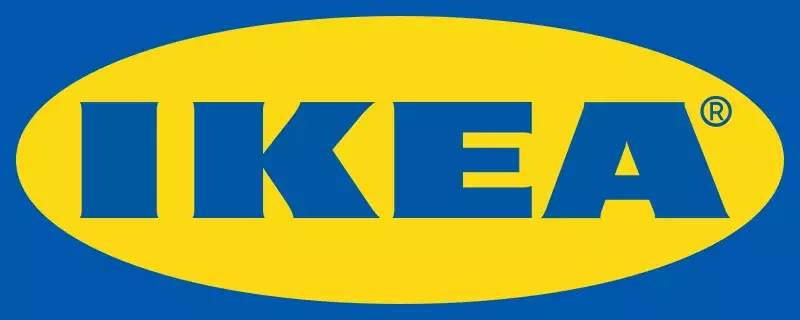- Services
- App development
- iOS app development
iOS app development: Building the right app, the right way

Trusted by startups and enterprises:
That moment just hit you. The perfect iOS app development idea that made you think, "The world needs this on their iPhones."
Maybe it's a neighborhood connector, a Candy Crush killer, or something entirely your own. Whatever it is - it's your baby. And you want to give it the best possible life.
Here's the truth: iPhone users have expectations. They want quality. They want that certain feel when they tap and swipe. They want something that feels like it belongs on their device.
Native iOS: Why the extra effort actually matters?
There are easier paths, sure. Web apps, cross-platform options. But iOS app development offers something special.
Here's how we see it:
It's about how it feels. The apps that just work on iPhones? They're built for the hardware. They're quick, smooth. Think of it like comparing a tailored suit to something off the rack. They'll both cover you, but one fits better.
And then there's the "iPhone ecosystem". People expect certain things: the way Apple Pay works, how HealthKit connects, even just the little design details. The phone has so much on offer, it'd be a shame not to use it.
Of course, that kind of quality comes with a challenge. Building a true iOS experience takes work. So, you want to be prepared! When potential clients come to us saying, "We need an iOS app," our first question isn't about features or timeline. It's about what problem they're trying to solve.
Why? Because we've seen too many projects burn through budgets building features nobody actually wanted. We'd rather help you build the right thing than just build things right.
Building an exceptional iOS experience isn't just about coding skills. It's about understanding the platform's possibilities, its constraints, and most importantly - how your users expect to interact with it.
Let's explore how to bring your idea to life - the right way.
Finding your dream team: It's all about the people (and their code)
Okay, let's be honest. Unless you're a coding ninja, you'll need help. Finding that right team? It's a journey in itself.
There are the big agencies you'll see first. They've got clients, they've got the marketing. But it sometimes feels like you're paying for a lot of stuff you don’t need.
Or you can go with smaller agencies. They might really listen, but can they handle all the code you need?
And there's the tempting lure of outsource iOS app development.
Savings? Absolutely.
And when done right, it's a game-changer for your business.
The beauty of modern outsourcing is finding that perfect balance - exceptional talent at competitive rates without sacrificing quality. It's not about cutting corners; it's about optimizing value.
Think about it: teams in places like Bosnia and Herzegovina aren't just cost-effective – they're hungry to prove themselves. Without local tech giants to compete with, they're eager to work on innovative projects for international clients. This creates an energy and dedication you simply can't buy.
The language barriers of yesterday? Gone.

Today's outsourcing partners are fluent in English, think critically, and won't just nod and agree with everything. They'll challenge your ideas when needed - bringing fresh perspectives that can transform your project.
And with today's collaboration tools, that team across Europe feels like they're right down the hall. A quick video call, a shared document, and you're solving problems together in real-time.
The geographical advantage of nearshoring means you're working with teams just a short flight away. When you need those critical face-to-face sessions, they're accessible - building relationships that transcend the typical client-vendor dynamic.
It all comes down to finding the right people - engineers who get your vision, care about your success, and write clean, maintainable code that stands the test of time.
So yes, outsourcing comes with tremendous benefits. The key is approaching it as a strategic partnership rather than just a cost-saving measure. When you find that perfect match - a team that combines technical excellence with genuine investment in your success - you'll wonder how you ever built anything without them.
Start with the apps. Look at the things these people have built in the app store already. Do you enjoy using them? That's a good sign!
Then, ask around. Who do you know who's built an app? What was their experience? Were they happy?
Talk to these potential partners. See if they're truly listening, or if they're just reciting a sales pitch. Be honest and ask the questions you need to in order to feel comfortable.
And be wary of promises that sound too good. This stuff takes effort, and they shouldn’t make it seem as though it's easy.
So, what happens when you actually find one? What are they going to do for you?
iOS app development services that matter (it's more than just writing code)
Really, it starts with design. If an app doesn’t look good, people just won't use it. You want something that's nice to look at, that makes sense, and matches the phone you are using.
Then, of course, you've got the coding itself. That’s the magic trick that makes the entire thing work.
And testing. Lots and lots of testing. Making sure things work before you release is so important.
After you release? They need to handle releasing the app.
And what will you have to worry about later? You want someone who will stick around, fix issues, and keep things updated.
But you want to make something special, so how does that all fall into the plans?
Case study: Industrial tooling native iOS and android app
We recently partnered with a leading global industrial tooling manufacturer to enhance their mobile application ecosystem. While we can't mention specifics due to confidentiality agreements, this engagement represents exactly the kind of strategic partnership we excel at.
The existing app was already serving as a critical tool for manufacturing professionals, offering comprehensive functionality including machining calculators, product scanning, tool comparisons, and technical optimization guidance. Users relied on it daily to make informed decisions about tooling parameters and product selection.
Our challenge was to seamlessly integrate commerce capabilities into this technical application without disrupting the workflows that made it valuable. Rather than simply adding a "buy" button, we took time to understand the complete user journey:
How machinists moved from identifying needed specifications to considering purchase options
The contextual information they required at each decision point
How offline functionality impacted the purchasing process on shop floors
By embracing a holistic view of the application's purpose, we transformed what could have been just a transactional feature into a natural extension of the value proposition: "Find the perfect tool, understand exactly how to use it, and order it right from your phone."
This project exemplifies our belief that successful mobile development isn't just about coding features - it's about truly understanding the business context and user needs that drive technology decisions. The resulting partnership has expanded from initial development into ongoing support and continuous optimization, demonstrating the lasting value of this approach.
Building custom iOS app development
You want more than a template. You want something unique, right? This is where it gets interesting.
Think about the long-term. What happens if your app gets huge? Can it handle the load? Is the data safe? What about if someone uses it with no Wi-Fi? All of this needs to be considered.
And let’s discuss budgets now.
The million-dollar question: How much does iOS app development cost?
Let's be honest - asking how much an iOS app costs is like asking how much a house costs.
The answer? It depends.
But we understand you want something more concrete than that.
When potential clients ask us this question at ZenDev, we don't immediately respond with a number. Instead, we ask: "What are you trying to accomplish?"
The reason isn't to be difficult - it's because we've seen too many clients waste their budget by focusing on the solution before fully understanding the problem.

Beyond the surface numbers
Traditional agencies might break down your requirements and see how many features they can squeeze into your budget. They'll call it an MVP, get your approval, and start building.
But here's the uncomfortable truth: this approach burns through your budget with little guarantee of success.
What if instead of spending your entire $100K on one development cycle, we used that budget for three iterative builds? Each cycle would deliver something testable, gather real user feedback, and improve the next version.
The real cost factors
Your iOS app development cost will primarily depend on:
- Complexity of your vision: Not every app needs complex backend infrastructure, real-time features, or third-party integrations - though many agencies will happily add these to your bill.
- Testing your core hypothesis: Sometimes you can validate your app idea with a $15K clickable prototype rather than a $80K full build. Why not test before committing to the full investment? At ZenDev, we typically run a 2-3 week discovery sprint where we map out the core user journey, build interactive wireframes, and put them in front of real users. This approach has saved our clients hundreds of thousands by revealing critical insights before a single line of production code is written. Learn more about our Build-Measure-Learn approach to app development.
- Development approach: A cross-platform framework like React Native might reduce costs by 30-40% compared to native iOS development - with minimal quality difference for many applications.
- Team composition: Do you really need three senior developers, or could one senior supported by mid-level developers deliver the same quality more efficiently?
Beyond the hourly rate trap
Many clients get caught comparing hourly rates - "$45 vs $75 per hour" – but this misses the bigger picture.
A more experienced team might charge more per hour but deliver significant value through:
- Fewer total hours needed
- Better architectural decisions that save future maintenance costs
- Experience identifying which features truly matter
Our approach at ZenDev
Before discussing budget, we focus on understanding:
- What specific business problem are you solving?
- Who are your users and what do they need?
- What's the minimum we can build to test your hypothesis?
This allows us to potentially deliver your vision for 40% less than you expected - or squeeze three valuable iterations out of the budget you thought would only cover one.
It's this mutual win mindset that creates long-term partnerships rather than transactional vendor relationships.
So, how much does iOS app development cost? The real answer is: exactly as much as needed to solve your problem effectively - not a dollar more.
What are you trying to build? Let's start there.
The plan of attack (because let's not overcomplicate it)
This is more or less how it'll go:
Talk time
Where we get deep into understanding what you're actually trying to solve. Not just what you think you need to build, but the real business challenge behind it. This is where we challenge assumptions and find the smartest path forward - not because we're trying to be clever, but because we genuinely want to maximize your budget.
Designing the vision
Creating the visuals and experiences that will give your users that feeling of "damn, this is nice." But here's the secret - we're not just making pretty screens. We're solving usability challenges, streamlining workflows, and translating your business needs into intuitive interactions. Explore our UX/UI design services →
The build
Time to start coding and bringing it all to life! Our developers don't just write code; they build with maintenance in mind. Clean architecture, proper documentation, thoughtful implementation - because we know today's quick hack becomes tomorrow's expensive technical debt. Learn about our app development expertise →
The break and make
This is where we intentionally try to break the app. We test edge cases, simulate real-world scenarios, and identify weaknesses. Then we strengthen it. Because finding those issues before your users do is the difference between an app people love and an app they delete.
Let it fly
Launching your app on the App Store isn't just a technical process - it's a strategic one. We help navigate the submission requirements, optimize your app store presence, and plan for that critical initial user response.
Take care of it
The launch is just the beginning. We stick around to monitor performance, gather user feedback, and implement improvements. Great apps aren't born perfect; they evolve through iteration based on real-world use.
Take the leap (but be ready to learn)
Here's the thing: Building an iPhone app is tough, but it can be amazing too! Just go in with some smarts and knowledge. Do your homework. Ask the right questions. Choose people you trust.
Most importantly: be ready to learn as you go.
It's a process, but who knows, maybe it'll be the next big thing!
What we've found after years of building iOS applications is that the most successful projects aren't just about following a process - they're about the partnership that forms as we navigate these phases together. The questions we ask, the assumptions we challenge, and the unexpected opportunities we discover along the way.
That's the real difference between hiring developers and finding a true technology partner.
Contact us today to discuss your app vision.
FAQs
How long does it take to build an iOS app?
The timeline for iOS app development typically ranges from 3-9 months, depending on complexity. But here's what matters more than the calendar: the strategic approach.
Rather than thinking in terms of a single build cycle, consider multiple shorter iterations. A three-month timeline might deliver your first testable version, allowing you to validate assumptions, gather user feedback, and refine your vision before investing further.
Your most valuable asset isn't just the app itself, but the learning you gain from each iteration. The right partner will help you establish a timeline that balances speed to market with strategic validation points.
How do I protect my app idea when working with a development partner?
Beyond standard NDAs, the best protection comes from choosing a partner with demonstrated integrity. Look for:
- Established history with verifiable references
- Transparent communication about their work processes
- Clear intellectual property agreements
- Willingness to explain security measures
At ZenDev, we maintain complete transparency throughout development while ensuring all code and assets remain your property. We believe in building trust through actions, not just contracts.
What happens after my app launches?
The post-launch phase is often where the real work begins. A quality partnership includes:
- Performance monitoring and analytics implementation
- User feedback collection and analysis
- Regular maintenance and security updates
- Iterative improvements based on real-world usage
- App Store optimization and version updates
Plan for at least 6-12 months of post-launch support and refinement. The most successful apps continually evolve based on user behavior and changing market conditions.
How do I ensure my app will scale as my business grows?
Scalability isn't just a technical consideration—it's a strategic one. Future-proof your app by:
- Building on a solid architectural foundation that supports growth
- Implementing flexible backend systems that can handle increased loads
- Designing with modular components that can evolve independently
- Planning for internationalization and localization early
- Creating analytics frameworks that provide actionable insights
The most valuable partners don't just build what you ask for today—they anticipate what you'll need tomorrow. They'll challenge assumptions, suggest alternatives, and ensure your technology can grow alongside your business ambitions.
Contact us today to discuss your app vision.
Project
Development of a brand new Magento store provided Hidroxa with more space and reliance to concentrate on product lifecycle management itself.
Digital Marketing
Web development







